Facebook Messenger adds Snapchat-style selfie filters
- Published
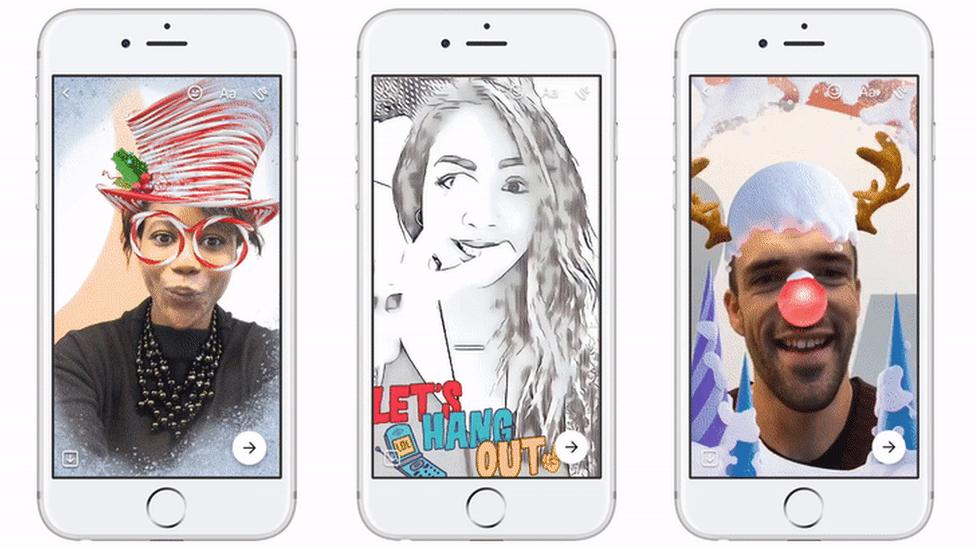
Messenger now allows users to apply stickers and art effects to video
Facebook has added selfie video filters to its Messenger app, similar to Snapchat's Lenses feature.
The software includes thousands of masks and special effects that are applied in real-time to video chats.
Facebook said it made the move because the "camera is now replacing the keyboard" in the way that users communicate.
One expert noted that chat apps are becoming increasingly feature-laden, as the industry becomes more competitive.
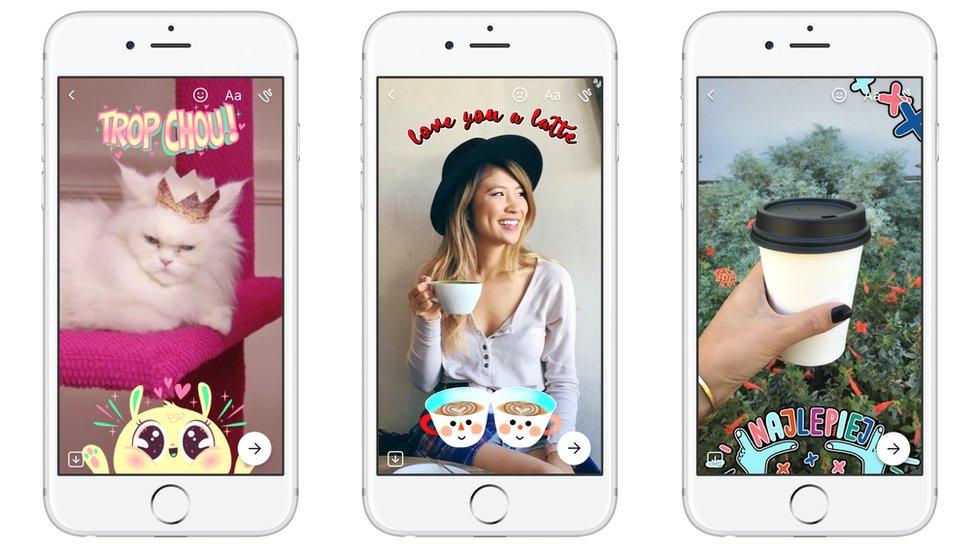
The update includes thousands of new pieces of artwork
"Every time one messaging provider brings out new features, the others need to react quickly," said Ben Wood at the CCS Insight consultancy.
"This is undoubtedly Messenger reacting to the challenge it has from rivals such as Snapchat."
Snapchat used to charge its users to access its lenses but made them free in January. However, it continues to make money from the facility by charging brands to feature their "sponsored" versions.
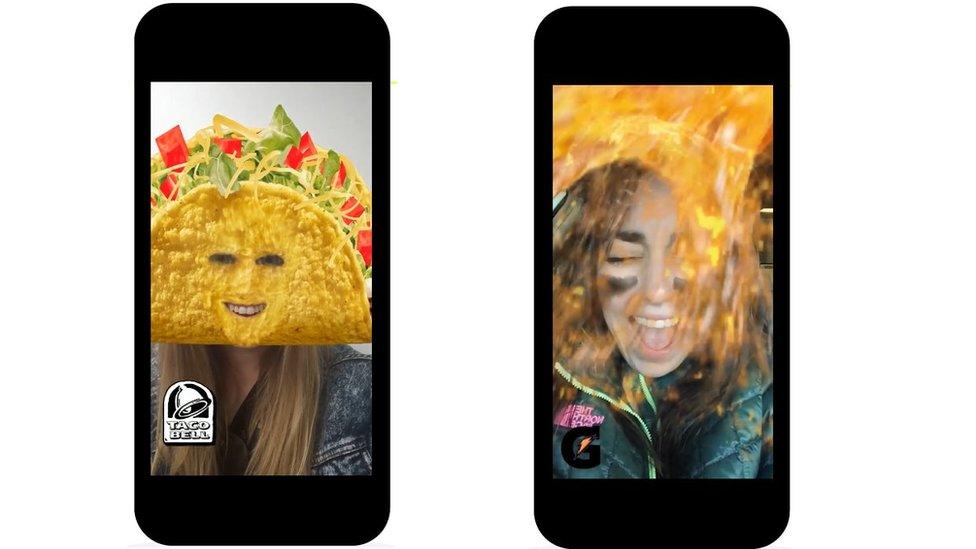
Snapchat has featured sponsored lenses from Taco Bell and Gatorade among others
Facebook reportedly tried and failed to buy Snapchat for $3bn (£1.6bn) in 2013. The smaller firm has had particular success at attracting younger users.
Facebook has since faced criticism for alleged "copycat" tactics, external, adding features to its products that Snapchat had already had success with. Recently, the Guardian pulled together a list of several examples, external.
"The way people share today is different than it was five or even two years ago, not only on our platform, but across any social media platform," a spokesman for Messenger said when the BBC asked about the matter.
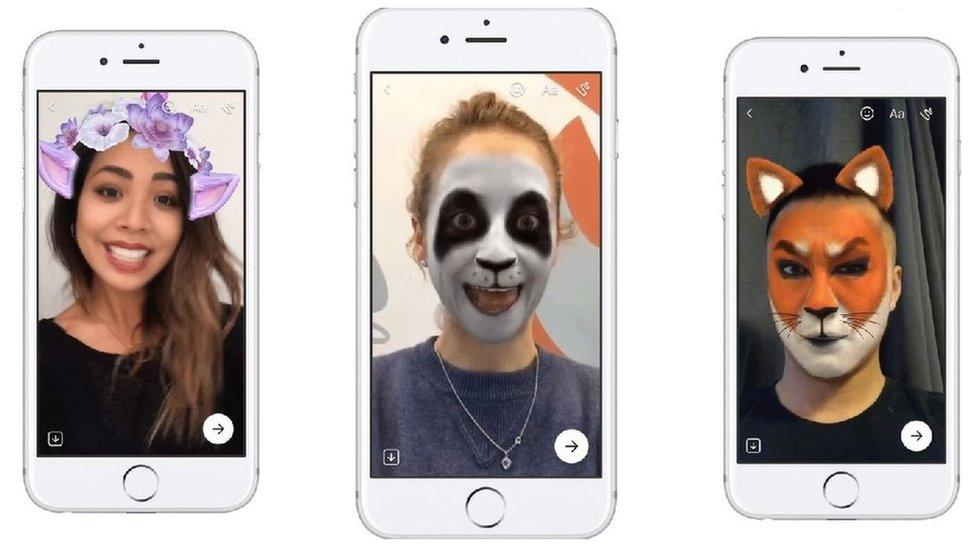
The masks and other effects are animated in real-time over people's faces
"Facebook continues to have the largest global audience of teens and millennials [...] so we want to cater to these changes."
Mr Wood also noted how the rise of "over-the-top" messaging services that use mobile data had caused a decline in SMS messaging.
"Network operators who have seen text messaging revenues crater as consumers have figured out it's far better to use an over-the-top service," he told the BBC.
- Published16 November 2016
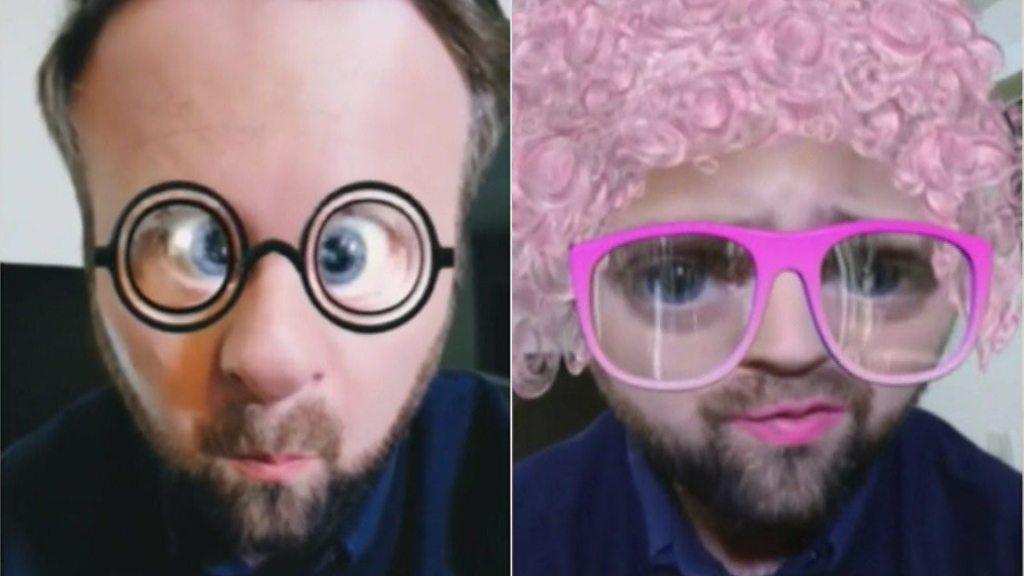
- Published14 October 2016
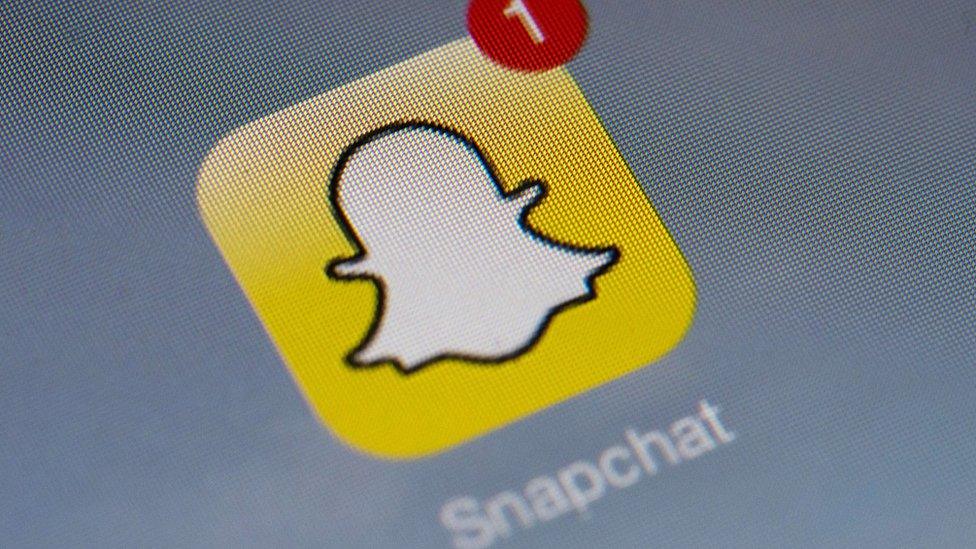
- Published3 October 2016
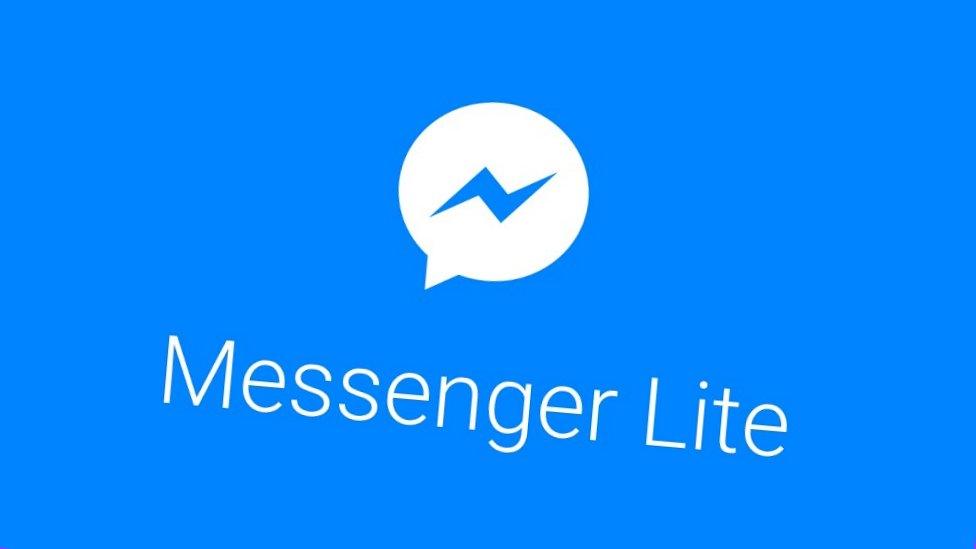
- Published6 June 2016
